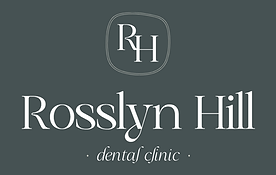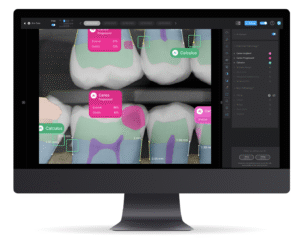Bad breath, or halitosis, is a common condition that affects millions of people worldwide. While it is often associated with poor oral hygiene, the causes of bad breath can be far more complex and varied. At Rosslyn Hill Dental Clinic, we understand the social and psychological impact persistent bad breath can have, and we are here to help you identify the cause and restore fresh, confident breath.
What Is Bad Breath?
Bad breath refers to an unpleasant odour from the mouth that can occur occasionally or be a chronic issue. It is usually caused by bacteria breaking down food particles, but it can also result from health conditions, medications or dietary habits.
Common Causes of Bad Breath
1. Poor Oral Hygiene
Inadequate brushing and flossing allow food particles to remain in the mouth. These particles are broken down by bacteria, producing sulphur compounds responsible for bad odours. Plaque buildup on the teeth and gums can lead to gum disease, which is another source of unpleasant breath.
2. Gum Disease (Periodontitis)
When plaque hardens into tartar, it irritates the gums and leads to infection. The bacteria involved in gum disease produce toxins and volatile sulphur compounds (VSCs) that contribute to chronic bad breath.
3. Bacterial Coating on the Tongue
The surface of the tongue, especially at the back, can harbour bacteria, food debris and dead cells. This bacterial coating is a significant contributor to bad breath and is often overlooked in daily oral hygiene.
4. Dry Mouth (Xerostomia)
Saliva plays a vital role in washing away food particles and neutralising acids produced by bacteria. A dry mouth encourages the growth of odour-producing bacteria. Common causes of dry mouth include:
- Dehydration
- Medications (especially antihistamines, antidepressants and diuretics)
- Breathing through the mouth
- Salivary gland disorders
5. Diet and Food Choices
Foods such as garlic, onions, spicy dishes, coffee and alcohol can cause temporary bad breath. These foods release odorous compounds that are absorbed into the bloodstream and exhaled through the lungs.
6. Smoking and Tobacco Use
Tobacco use not only causes its own type of breath odour but also contributes to gum disease, dry mouth and staining. Smokers are more likely to experience persistent halitosis.
7. Medical Conditions
In some cases, bad breath may be a symptom of an underlying health condition. These include:
- Sinus infections and postnasal drip
- Respiratory tract infections (e.g. tonsillitis, bronchitis)
- Gastroesophageal reflux disease (GERD)
- Diabetes (especially if poorly controlled)
- Liver or kidney disease
If your dentist rules out oral causes, they may refer you to your GP for further investigation.
How to Prevent Bad Breath
1. Practise Thorough Oral Hygiene
- Brush your teeth twice a day for two minutes using fluoride toothpaste
- Floss daily to remove plaque and food particles between teeth
- Use a tongue scraper or brush your tongue gently
- Consider an antimicrobial mouthwash to reduce bacteria
2. Stay Hydrated
Drinking water throughout the day helps maintain saliva flow and rinse away food debris.
3. Avoid Smoking
Quitting smoking and avoiding tobacco products can significantly improve breath and overall oral health.
4. Watch Your Diet
Limit your intake of foods known to cause odour. Rinse your mouth or brush your teeth after meals containing garlic, onions or spicy ingredients.
5. Manage Underlying Conditions
If you have dry mouth, acid reflux or sinus issues, managing these with the help of a healthcare provider can reduce their impact on your breath.
6. Visit Your Dentist Regularly
Routine check-ups and professional cleaning remove plaque and tartar that contribute to bad breath. Your dentist can also identify early signs of gum disease or other concerns.
When to See a Professional About Bad Breath
If bad breath persists despite maintaining good oral hygiene and healthy habits, it is time to seek professional advice. Chronic halitosis may be a sign of a deeper oral or systemic health issue.
At Rosslyn Hill Dental Clinic, we offer thorough assessments to identify the root cause of bad breath. Our treatments may include:
- Professional cleaning to remove plaque and tartar
- Periodontal (gum) therapy
- Advice on managing dry mouth
- Personalised oral hygiene plans
To learn more, visit our dedicated page on Bad Breath Treatment in London.
Get In Touch
Bad breath can be more than just a social inconvenience, it can indicate important oral or general health concerns. The good news is that in most cases, it is treatable and preventable with the right care.
At Rosslyn Hill Dental Clinic, we are committed to helping you achieve lasting fresh breath and improved oral health. Book your consultation with our expert team today and take the first step towards greater confidence and wellbeing.





